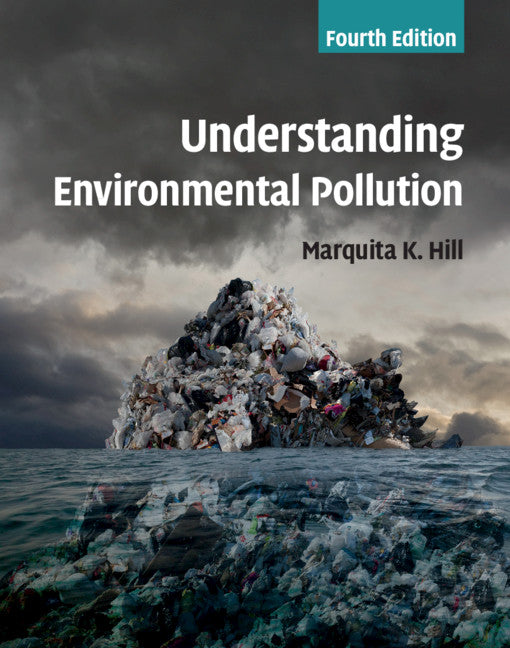Freshly Printed - allow 8 days lead
Couldn't load pickup availability
Understanding Environmental Pollution
Thoroughly updated new edition of this undergraduate textbook examines environmental pollution from our homes to the global environment.
Marquita K. Hill (Author)
9781108436106, Cambridge University Press
Paperback / softback, published 9 July 2020
466 pages, 105 b/w illus. 44 tables 327 exercises
27.5 x 21.9 x 2.1 cm, 1.33 kg
'The fourth edition of Understanding Environmental Pollution provides a comprehensive and straightforward introduction to a wide range of environmental topics, including toxicity and risk assessment; a survey of air, water, and land pollution; energy use; and global change. A unique and intriguing focus of this book is the emphasis not merely on pollution reduction but on switching to a circular economy that features closed-loop, zero-waste, zero-emission systems and processes.' Usha Rao, St Joseph's University
This undergraduate textbook examines environmental pollution ranging from our homes to the global environment. Completely updated and with over 50% new and rewritten material, this new edition assesses the international scope of pollution, including water, climate change, acidification, energy, solid and hazardous waste, persistent chemicals, and pesticides. The pollutants of current major concern are examined, including plastics and electronic waste. Both the impacts and the sources of pollution are addressed, as well as governmental, corporate, and personal responsibility for pollution. Pollution prevention is emphasized throughout, but students will come to see that prevention is not enough. The text moves on to examine a circular economy with closed-loop systems, where by-products are reused, wastes become raw materials, water is recycled, and energy is recovered from waste energy. Understanding Environmental Pollution engages students with the idea that humanity holds the tools to confronting the daunting pollution issues by considering a circular economy.
Preface
Acknowledgements
List of abbreviations and acronyms
1. Understanding pollution
2. Reducing pollution to reduce risk
3. Chemical toxicity
4. Chemical exposures and risk assessment
5. Ambient air pollution
6. Acid deposition
7. Global warming and ocean acidification
8. Energy and pollution
9. Stratospheric ozone depletion
10. Water pollution
11. Drinking water pollution
12. Solid waste
13. Hazardous waste
14. Persistent, bioaccumulative, and toxic chemicals
15. Metals
16. Pesticides
17. Indoor air pollution
18. Zero waste, zero emissions
Appendix. Chemistry – basic concepts
Index.
Subject Areas: Environmental science, engineering & technology [TQ], The environment [RN], Geochemistry [RBGK]


